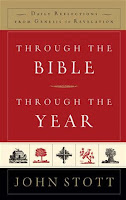Ten Commandments
What kind of rules are the Ten Commandments? Different rules are designed to guard and elicit the proper responses to the values and norms of the parties involved. 1) Legislative rules carry the force of law. This is what Congress passes and becomes the basis of civil and criminal liability. 2) Procedural rules govern the work of legislative agents and their application of the law. All three branches of government - Legislative, Judicial, Executive - are governed by these kinds of rules. 3) Interpretive rules which are the rubrics for applying the law in given circumstances.
Torah is the Hebrew word translated "Law" and we normally think of the Ten Commandments usually in legislative terms. In truth, it is all of these types of rules and even more than these. Torah is more inclusive than our word "Law," even in its most expansive sense.
Torah derives from an archery word "yarah," and means to shoot an arrow. Torah is the nominative form of this verb. Torah is a "targeted" word. It is a personal word from a personal God which invites the hearer into a personal relationship. Exodus 15:26 is representative of this kind of personal directive: If you will diligently listen to the voice of the LORD your God, and do that which is right in his eyes, and give ear to his commandments and keep all his statutes, I will put none of the diseases on you that I put on the Egyptians, for I am the LORD, your healer."
To "listen to the voice" and "give ear" is a personal response to a personal word. This word comes in the form of invitation into a relationship known as "covenant." There are different kinds of covenants in the Bible. There is the "treaty" between unequal, and usually warring, parties. In this kind of covenant, the lesser swears loyalty to the greater and the greater promises protection to the lesser partner. There is a "pact" between once competitive parties who now have each others' backs. Such is the covenant between Jonathan and David. Finally, there is a "promise" between parties who share not a common objective, such that once the objective is completed the agreement is ended. Rather, it is an agreement that puts the relationship and its flourishing at the heart of the covenant.
The Ten Commandments is the form of God's agreement, His promise, with his "segullah" - his special, treasured possession (Exodus 19:6). In comes in two kinds: laws that govern our relationship with God and laws that govern and protect our relationship with others. These laws originally appeared on two tablets, one tablet for each kind. Part three of this post will look more closely at the specific commands contained on these two tablets.

No comments:
Post a Comment